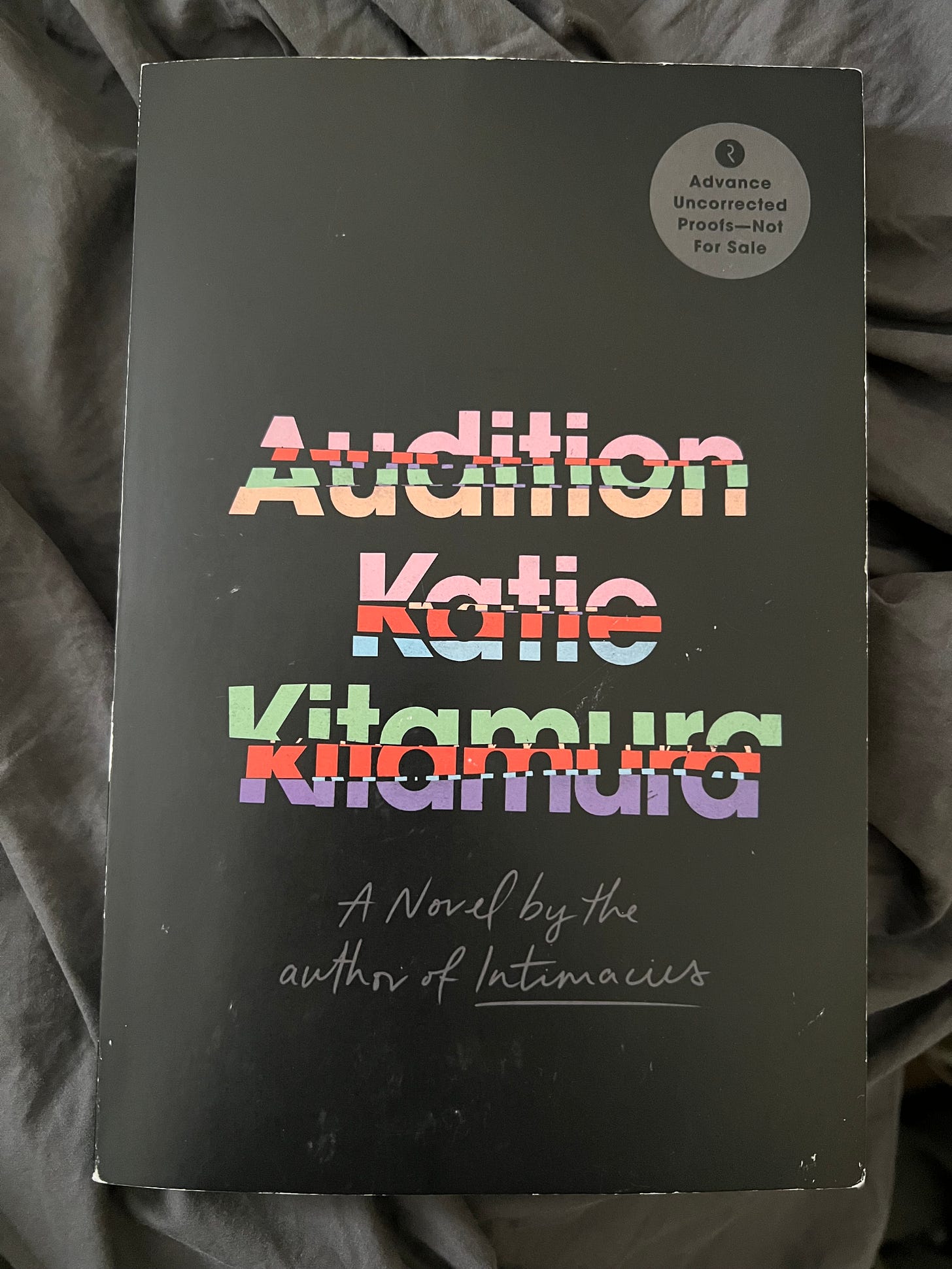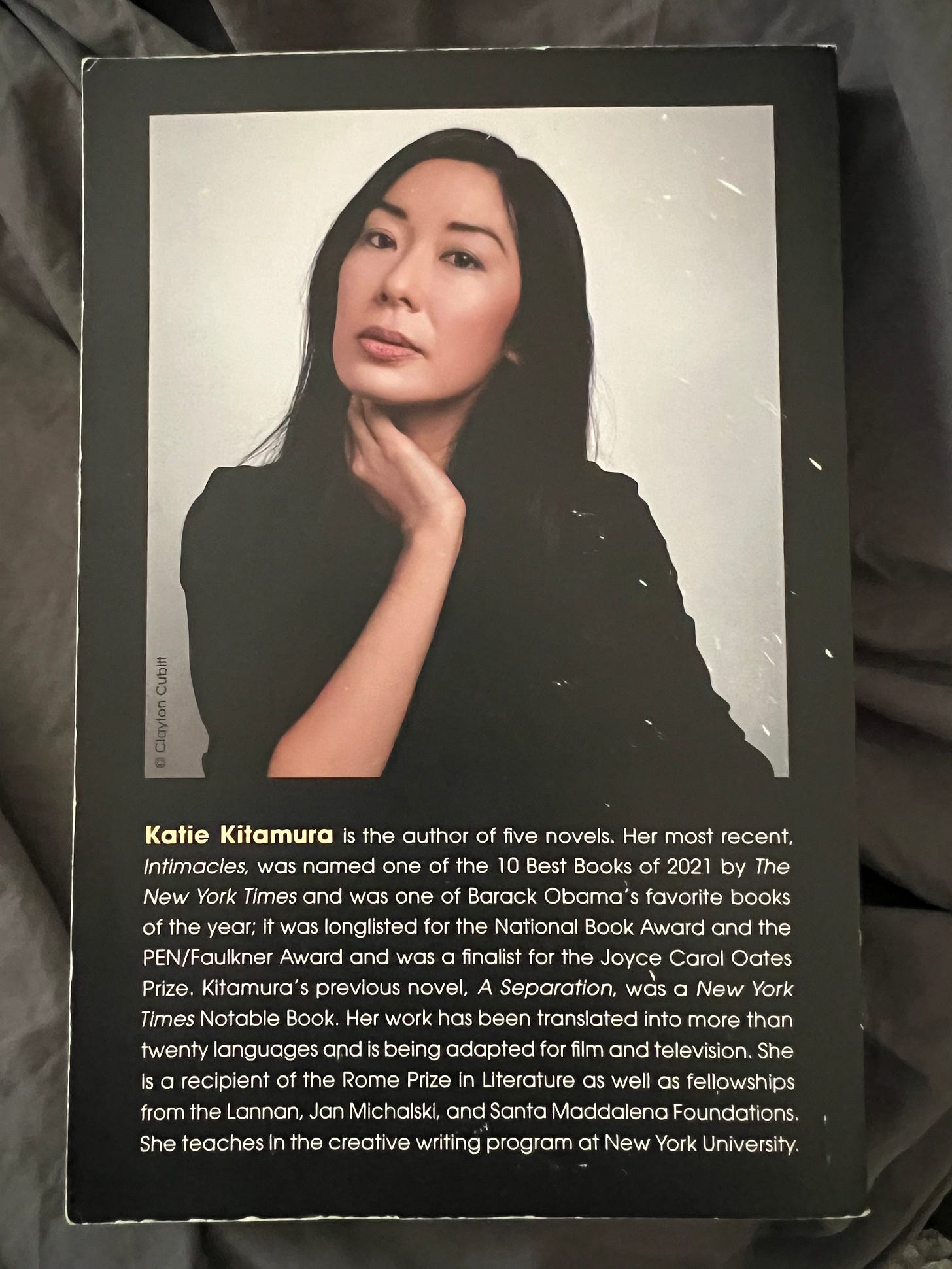Review: A Spellbinding Breaking of the Psyche in "Audition"
Katie Kitamura's fourth novel gives a whole new meaning to role play
An attempt to distill Katie Kitamura’s upcoming novel “Audition” is an attempt to distill one’s own consciousness. Readers become so confined by the narrows of our unnamed narrator’s mind that her fixations and fears begin to mirror our own anxieties. And as far as narrators go, this one is as unreliable as they come.
We meet her during lunch rush in FiDi. A trepidatious rendezvous with a young stranger who is not a stranger at all. Few words are exchanged. Internal woes take precedence and then swell when her husband, Tomas, arrives but then abruptly departs. What did he see? What didn’t he see? What does he know? What does he think he knows?
This amorphous—if not mundane—opening scene is the perfect introduction to “Audition.” Unbeknownst to the reader at the close of the first chapter, the questions haunting our narrator will soon haunt us, too.
Synopsizing Kitamura’s fourth novel without exposing any of the cards she holds is daunting, but I’ll say this:
A nameless actress of midscale prestige attempts to distance herself from an enterprising young man as she frets over an impending stage production. Her futility against distraction grows more pronounced as the boons of her personal life transmute into a boobytrap.
Across a tight 200 pages, Kitamura weaves a web of ambiguities that compounds toward points unknown. Quotidian tasks like ordering breakfast pastries or walking home become so routine in the narrative that soon they are taut with suspense. Distrust is sown every time the narrator dismisses a cold idiosyncrasy as innocuous. Descriptions of her own apartment become inconsistent. Normalcy begins to resemble masquerade, shrouding the clues needed to crack open the conceit behind everything.
To read “Audition” is to chase a dangled carrot on a treadmill, turning pages in hot pursuit of a great revelation. Both a pointed comedy of manners and a slow-burning thriller, the text evokes the cinematic, surrealist horror of Buñuel or Aronofsky in its skewed portrayal of reality. That is, before reality goes out the window. Or doesn’t.
A mercurial mystery, “Audition” dares readers to exist in the mind of an insecure protagonist whose relationship with reality muddies in correlation with our confusion as to why. The complex architecture of Kitamura’s house of cards is an apt framework for such a decadent, and even kinky, exploration of identity. It’s a first-rate social satire reminiscent of Edith Wharton’s existential tales of repression.
Like this review, “Audition” is an exercise in contradictions. It is a delicious kind of deceit. I could try to further examine the novel’s intricacies, but instead, I’ll let Kitamura do the talking.
“It is possible to be two things at once. Not a splitting of personality or psyche, but the natural superimposition of one mind on top of another mind. In the space between them, a performance becomes possible.”







So looking forward to this book. Kitamura is an incredible writer.
Excellent piece — spot on too!!!